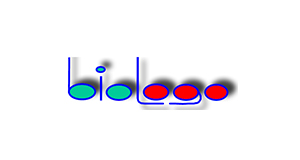Collagen Type I, mouse
Collagen Type I, mouse
SKU
BILCO20151-0.1
Packaging Unit
0,1 ml
Manufacturer
BioLogo
Availability:
loading...
Price is loading...
Background: Type I Collagen usually exists as a heterotrimer formed by alpha 1(I) and alpha 2(I) chains and is found in bone, cornea, skin and tendon. In foetal tissues also homotrimers of alpha-1(I) are found, but they are not constituents of normal adult tissues. Collagens consist of a family of highly specialized glycoproteins of which at least 16 genetically distinct types are known to date. The basal unit of a collagen molecule consists of a triple-helical structure formed by 3 alpha-chains. Predominant amino acids are glycine, proline and hydroxproline. Regularly also lysines and hydroxylysines occur, which are responsible for cross-linkage and glycosylation of the protein chains. Different composition of alpha-chains and different glycosylation contribute to the high variability of collagens in different tissues and organs. Mouse collagen type I 100%, mouse collagen type II and IV <0.1%; mouse collage type III <1%; .
Positive Control: Mouse skin
Immunogen: Purified collagen type I from murine skin
Purification Method: affinity purified antibody lyophilized from phosphate buffered solution; no BSA and preservative added!
Concentration: app. 1 mg/ml
References: 1. Demarchez M., Hartmann D.J., Herbage D., Ville G., Prunieras M. (1987) Wound-healing of human-skin transplanted onto the nude-mouse. 2. an immunohistological and ultrastructural study of the epidermal basement-membrane zone reconstruction and connective-t 2. Duprez A., Guerret S., Vignaud J.M., Plenat F., Hartmann D.J., Grimaud J.A. (1987) The interstitial matrix of human carcinomas and sarcomas transplanted to the nude mouse : immunolocalization of some human and murine components. Cell. Mol. Biol. 33, 647-6 3. Andujar M.B., Hartmann D.J., Emonard H., Magloire H. (1988) Distribution and synthesis of type I and type III collagens in developing mouse molar tooth root. Histochemistry 88, 131-140. 4. Plenat F., Vignaud J.M., Guerret-Stocker S., Hartmann D., Duprez K., Duprez A. (1992) Host-Donor interactions in healing of human split-thickness skin grafts onto nude mice: in situ hybridization, immunohistochemical, and histochemical studies. Transplant
UniProt: P11087
Caution: *These antibodies are intended for in vitro research use only. They must not be used for clinical diagnostics and not for in vivo experiments in humans or animals.
Positive Control: Mouse skin
Immunogen: Purified collagen type I from murine skin
Purification Method: affinity purified antibody lyophilized from phosphate buffered solution; no BSA and preservative added!
Concentration: app. 1 mg/ml
References: 1. Demarchez M., Hartmann D.J., Herbage D., Ville G., Prunieras M. (1987) Wound-healing of human-skin transplanted onto the nude-mouse. 2. an immunohistological and ultrastructural study of the epidermal basement-membrane zone reconstruction and connective-t 2. Duprez A., Guerret S., Vignaud J.M., Plenat F., Hartmann D.J., Grimaud J.A. (1987) The interstitial matrix of human carcinomas and sarcomas transplanted to the nude mouse : immunolocalization of some human and murine components. Cell. Mol. Biol. 33, 647-6 3. Andujar M.B., Hartmann D.J., Emonard H., Magloire H. (1988) Distribution and synthesis of type I and type III collagens in developing mouse molar tooth root. Histochemistry 88, 131-140. 4. Plenat F., Vignaud J.M., Guerret-Stocker S., Hartmann D., Duprez K., Duprez A. (1992) Host-Donor interactions in healing of human split-thickness skin grafts onto nude mice: in situ hybridization, immunohistochemical, and histochemical studies. Transplant
UniProt: P11087
Caution: *These antibodies are intended for in vitro research use only. They must not be used for clinical diagnostics and not for in vivo experiments in humans or animals.
| SKU | BILCO20151-0.1 |
|---|---|
| Manufacturer | BioLogo |
| Manufacturer SKU | CO20151-0.1 |
| Package Unit | 0,1 ml |
| Quantity Unit | STK |
| Reactivity | Human, Mouse (Murine), Rat (Rattus), Chicken |
| Clonality | Polyclonal |
| Application | Immunofluorescence, Immunohistochemistry (paraffin), Western Blotting, ELISA, Radioimmunoassay (RIA) |
| Host | Rabbit |
| Product information (PDF) | Download |
| MSDS (PDF) |
|

 Deutsch
Deutsch







